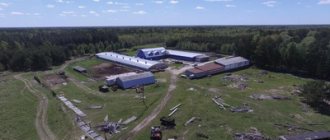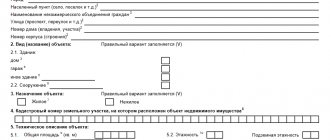The concept of garage privatization has become popular and in a broad sense covers many ways of acquiring this property.
The need and methods of privatization depend on the ownership regime , on the availability of documents for the building and site , on the date of construction and its location.
For example, a garage box built in a cooperative, after full payment of the share, becomes the property of a member of the society, but the right must be registered.
What are the pros and cons of privatization?
A municipally owned garage can be privatized within the framework of an approved privatization program at auction, through redemption .
A structure that is an unauthorized construction of previous years can be privatized by recognizing the right to it in court .
While ownership of the building is not registered, authorities may seize the site for municipal needs, for example, for building a house, laying communications, roads, which will entail the demolition of the illegal building.
Advantages of garage privatization:
- Only such a garage can be an object of purchase and sale, donation or rental.
- The property to which ownership is registered can also be inherited property or a pledged asset.
- A privatized garage becomes a source of income if it is rented for a long time.
A significant negative factor for the owner is the need to pay property taxes annually.
The unity of fate of the garage and the area under it will require the privatization of the land, which will entail additional costs and taxes.
Dacha house amnesty: wait or run
There are specially trained people who have the right to prepare and sign a technical plan. They are called cadastral engineers. By the way, this profession is in great demand today. A cadastral engineer is most often an individual entrepreneur, less often a legal entity. face. All of them have a qualification certificate and are included in a special cadastre, because They have a serious responsibility for the work they do. It is clear that these are commercial structures and they provide their services for a fee.
- application for cadastral registration and registration;
- document confirming the right to land;
- building permit;
- technical plan with a declaration drawn up by the owner;
- state duty payment.
Until 2020, a technical plan was not needed for residential buildings and outbuildings located on land plots provided for summer cottages, gardens and vegetable gardens. A country house, if it is not a permanent structure, belongs to residential buildings, and not to residential buildings. This is a “tightening” of the dacha amnesty.
Changes in legislation in 2020 regarding privatization
An important legislative change in 2020 for the privatization of garages was the extension until March 1, 2020 . the possibility of a simplified procedure for registering the right to them within the framework of the “dacha amnesty”.
This allows you to legalize a building located on a site for garage construction. Permission for construction and commissioning is not required in this case.
The owner is allowed to independently draw up a declaration containing data on the cadastral number of the plot, address, and technical characteristics. The declaration is the only document confirming the creation of a garage.
From 2020, property tax, including garages, will be calculated from the cadastral value of the property, which will lead to an increase in tax.
The acceleration of the privatization process is facilitated by the strengthening, starting from March 2020, of administrative liability for unauthorized occupation of plots and use of them without documents. For this, fines range from 5,000 to 10,000 rubles (Article 7.1 of the Code of Administrative Offenses of the Russian Federation) .
Timely registration of rights to the site and buildings on it will help you avoid liability.
Register a garage under the dacha amnesty
Having collected all the necessary documents, you must pay the state fee, since the registration procedure is carried out on a paid basis. The Tax Code of the Russian Federation, Article 333, first part 22, sets the amount of the state duty at 2 thousand rubles.
All of the above documents are supplemented by a written application and sent to Rosreestr. They can also be sent by mail, in the form of an electronic request on the State Services portal or using the official website of the unified Rosreestr. In addition, the same package of documents can be sent to the Multifunctional Center, as well as to the Cadastral Chamber.
Sometimes employees of these organizations may not miss documents due to the lack of a technical and cadastral passport. Still, at first it’s worth calling a specialist from the Technical Inventory Bureau so that he can take measurements of the site and the buildings on it, and within 30 days you can pick up a passport for the site.
Having collected your passport, you should go with it to the Cadastral Chamber in order to obtain a cadastral passport. It is impossible to go through these procedures in reverse order.
The necessary documents can be sent personally by the owner of the site, in whose name it will be registered, or by his representative. Such a person should have a notarized power of attorney and a passport.
Cases of refusal to register
Form of certificate of membership in a garage-construction cooperative.
And this also happens. They may refuse if registration is suspended, as well as in the following cases:
- some of the documents required by law are missing;
- the property has already been registered and no one else has the right to it;
- the object is not registered in the cadastral register;
- documents were drawn up and signed by an unauthorized person.
Of course, there is little pleasure, but the refusal can be appealed in any court.
How much will you need to pay for a legalized plot?
For a dacha with a garage and other buildings, you must pay two taxes per year:
- land – per plot;
- for property - for buildings on the site.
The tax rate itself is determined by the municipal authorities. How much can be found out from local authorities, but it cannot exceed 0.3% of the cadastral value of the site.
There are benefits for WWII veterans, pensioners and disabled people, for which they can take a tax deduction equivalent to the cadastral value of 600 square meters. Consequently, beneficiaries will not have to pay for a plot of six acres.
Local authorities also regulate property tax rates for individuals, and they should not be higher than 0.1% of the cadastral value of real estate. There is one more feature: the cadastral value is reduced by the cadastral value of 50 square meters.
This rule is valid only until 2020 when calculating tax. In other words, there is no need to pay tax for a building with a total area of less than 50 square meters.
Where to start privatization?
The possibility, procedure and sequence of privatization of a detached garage depend on the availability of documents for the land.
You can take advantage of the “dacha amnesty” conditions.
If the plot was previously provided for use or inherited possession , you can register ownership of the land by submitting an act of an authority or a certificate to Rosreestr.
If there are no rights to a land plot, it is necessary to begin with its surveying with the help of a cadastral engineer. Establishing the boundaries of the plot will make it possible to register it and obtain a cadastral passport.
A plot of land registered by a local authority can be leased to the owner, which, in turn, will make it possible to register the right to a garage.
Ownership of an unauthorized construction can be recognized in court if this does not violate the rights and interests of other persons.
a claim with the court , but before that it is necessary to resolve the issue of registering the right to land, as well as obtain a passport for the building after it is registered in the cadastral register.
The privatization of a garage in a cooperative is distinguished by the need for the cooperative to participate in this process as a legal entity.
It is impossible to do without documents on the provision of the site to the cooperative, permission for construction and commissioning.
Any of these options will ultimately require an application to Rosreestr to register the right.
Documents for privatization of a garage under the dacha amnesty
If you don’t have a document on the right to use and own the land, not very honest citizens will be able to take possession of the land by challenging the ownership in court and then it will be quite difficult to prove anything.
To avoid such situations, you should collect a package of technical documentation. First, it is worth obtaining an act from the authorities, according to which the rights to use the site are granted and the fact of ownership is established.
Next, a declaration for the property is filled out, where you should indicate the location of the site and where exactly the building is located on it, its area, type of foundation and construction material of the garage. The declaration is completed in two copies. The form can be found in the Consultant Plus system or taken directly from Rosreestr.
In this case, when registering, a permit for construction and commissioning of the premises is not required, and this simplifies the procedure.
And the third type of documents is a cadastral plan of buildings erected earlier than March 1, 2008, or a cadastral passport for younger buildings. The above data is enough to register the property using a simplified procedure.
Documents required for privatization
The list of documents required for privatization also depends on the method of recognizing the right to a garage.
As part of the “ dacha amnesty ”, any of the government acts will be required for the plot:
- act on the provision of land;
- certificate of entitlement;
- an extract from the household register about the law (for personal subsidiary plots);
- other document establishing the right.
A declaration in a form approved by law will be required for the garage.
If a right is recognized in court, a court decision on recognition of rights that has entered into force must be presented.
If privatization is carried out on the basis of land documents, it is necessary:
- resolution of the authority on the provision of the site;
- plot lease agreement (at least two originals).
For boxing in a garage cooperative you will need:
- certificate of membership in the cooperative and payment of shares;
- minutes of the meeting on membership in the cooperative;
- act of an authority on the allocation of a site for construction;
- construction permit, permission to enter the facility;
To register the first box, you need documents of the cooperative as a legal entity.
The registering authority will receive the cadastral passport from the cadastral chamber independently.
Garage amnesty bill
In January 2020, the State Duma decided to amend 218-FZ, including adding the concept of individual garage construction to Article 49.1. Therefore, we can conclude that the Garage Amnesty Law will soon be adopted.
The purpose of introducing such an initiative was the desire to:
- systematize the position and legal status of garage cooperatives;
- legitimize the legal basis for the activities of garages and garage-building associations;
- formulate the basis for registering rights to objects of such a narrow purpose as garages.
It is noted that the text of the bill contains provisions that regulate relations related to the construction and use of individual and collective garages, as well as parking spaces. The peculiarities of the emergence of rights to land plots located under garages and parking spaces are also taken into account.
Document also:
- provides a formulation of concepts related to vehicle storage. The law will provide a clear definition of such terms as individual garage, collective garage, garage complex and cooperative, and parking space. The concept of a non-permanent garage will be introduced;
- establishes mechanisms according to which citizens can be given plots of state or municipal land where garages were built before the norms of the Town Planning Code came into force. For this purpose, a list of documents has been developed that must be prepared to register their ownership;
- imposes a ban on the commercial use of individual or non-capital garages, as well as parking spaces, and profit-making;
- allows the constituent entities of the Russian Federation to independently determine the composition of documents for the transfer of land plots under garages into the ownership of citizens;
- determines the legal status of the GSK and their members;
- establishes the procedure for the installation and operation of non-permanent garages, which may be located on municipal or state-owned lands;
- determines for disabled people the priority right to receive an allotment for the purpose of erecting an individual permanent garage or installing a non-permanent garage space on a plot of state or municipal property, subject to the establishment of an easement.
However, the bill will not be aimed at the following objects:
- underground parking lots, as well as garages located in multi-apartment residential buildings and commercial buildings;
- garages that are part of an individual residential or garden house, buildings for production, industrial, commercial purposes (these also include buildings where repair, maintenance and vehicle washing services are provided);
- garage premises used by government agencies and other territorial authorities, as well as transport companies.
The main advantage of the adoption of the law on garage amnesty is the ability to register ownership of a place used to store a vehicle without involving a court. To do this, the owner will need:
- collect documents in accordance with the list and submit it to the state registration authority - Rosreestr;
- obtain an extract from the Unified State Register of Ownership.
After the object is registered as a property, the owner will be able to fully dispose of it: sell, donate, conduct communications, etc. On the other hand, he will become a tax payer on this property. Additionally, the authorities will have the opportunity to oblige the owner to maintain it in proper condition. In particular, carry out timely removal of garbage from your garage.
The draft law on garage amnesty provides for the following changes:
- “garage cooperative”, “garage construction cooperative”, “garage consumer cooperative” will be considered equivalent concepts. Accordingly, their constituent documents must be brought into compliance with the law;
- individual garages are recognized as premises and buildings one floor high, where there are areas only for storage, placement of vehicles, as well as property necessary for its operation;
- collective garages are immovable objects with one or more storeys, containing parking spaces, separated by a wall or without them;
- the owner of the parking space will have a share in the ownership of the collective garage in proportion to the area of such space. The possibility of registering ownership of a public land plot within the boundaries of a collective garage is excluded.
Privatization of land under the garage
To register rights to a land plot under a privatized building, the owner must contact the local government authority with an application for granting ownership of the plot , to which must be attached:
- cadastral passport for the site (based on survey results);
- document on the right to a garage;
- extract from the register of rights.
The owner of a building can obtain the right to land by purchasing it without holding a tender. The redemption is formalized by a resolution of the municipal body and an agreement.
The cost of land privatization varies depending on location and local legislation.
If you own a box, that is, part of the complex, the right to a share in the common ownership of the land , the registration of which will require the participation of the remaining shareholders.
For heirs of garages, another way of acquiring land is possible. Having a certificate of inheritance, another title document for the building and a document confirming the previous owner’s right to use the site, the copyright holder can register ownership of the site under the garage.
“Dacha amnesty” allows a citizen to formalize the right to a plot if it was provided to him for use before the introduction of the Land Code of the Russian Federation and has a permitted use - for garage construction . Land surveying of previously registered areas is not necessary for registration.
Registration of a garage as property under the dacha amnesty
Having built a house, a garage or buildings with a separate entrance and a permanent foundation on their site, each owner must take care of registering the property, which will allow them to fully dispose of it in the future: donate, sell, bequeath.
The simplified procedure makes it possible to legitimize property much faster and with less documentation for people who were previously frightened by the registration process precisely because of its complexity.
Declaration of real estate property.
The dacha amnesty law makes it possible to register a land plot planned for the following work:
- gardening;
- building a house;
- installation of a garage;
- country farming, greenhouses and similar elements.
The already simple procedure is simplified by the fact that the land plot under the building is in perpetual possession.
But there is a limitation: you cannot undergo the procedure if the site is planned to be used for personal gain in the future; in other words, existing buildings cannot then be used for shops, private saunas and small businesses.
Privatization procedure and terms
The privatization procedure may differ depending on the method of registration of property and the type of object.
In any case, based on the boundary and technical plan, it is necessary to register both the garage and the land.
Obtaining a document of title for a plot is possible by contacting local authorities or, according to the norms of the “dacha amnesty” - registration authorities.
Depending on the specific situation, ownership can be issued:
- within the framework of the “dacha amnesty”;
- based on the documents of the cooperative;
- By the tribunal's decision.
For example, open ownership of an unauthorized structure for more than 15 years will allow recognition of ownership by acquisitive prescription.
After receiving the necessary documents for the privatized garage, in order to create ownership, it is necessary to register it.
The timing of the privatization procedure varies greatly depending on the circumstances and the necessary operations to obtain the right.
Carrying out on-site measurements, drawing up boundary and technical plans can take more than one month of work of a cadastral engineer.
The period for the authorities to make a decision on granting ownership of a plot of land cannot exceed 30 days from the date of receipt of the application and documents.
In accordance with the “dacha amnesty”, the period for privatization of the garage is limited by law until March 1, 2020.
Conditions and procedure for the privatization of garages carried out after March 1, 2015
Find out how to solve exactly your problem - call right now (Moscow) (St. Petersburg) It's fast and free! Garages, as well as private houses, dachas, and other buildings, must undergo a registration procedure to register ownership of the object. At the same time, the legislation of the Russian Federation in some cases provides for the possibility of doing this under the “dacha amnesty”, that is, according to a simplified scheme.
Garage amnesty law in 2020
In order for a person to exercise his right, he must provide a document containing information about payment of the share fee for the premises belonging to the garage complex. A document is also required documenting the fact that a land plot has been allocated to a garage cooperative. But for one reason or another, this bill never reached the adoption stage. Please note! Currently, the draft law is only planned to be submitted to the government for preliminary discussion in May 2020.
The proposal to hold a garage amnesty was first voiced in the State Duma in 2020, when amendments were made to Federal Law No. 218 “On Real Estate Registration . The Ministry of Economic Development has begun developing a corresponding bill. And although some of the provisions are already known, the draft law on garage amnesty has not yet been officially discussed .
Obtaining a certificate of ownership
Privatization can be considered completed after receiving a certificate of title , for which the owner must submit documents, an application and a receipt for payment of state duty to Rosreestr, the Cadastral Chamber or the Multifunctional Center.
Documents can be submitted either in person in originals and copies, or by mail , and all documents must be notarized.
It is possible to send documents in electronic form, but with an enhanced electronic digital signature.
The state fee for registering a box on a site for garage construction is 350 rubles . The registration period cannot exceed 10 days .
After the documents are accepted, a legal examination is carried out, based on the results of which a decision is made on registration or suspension if there is doubt about the possibility of registration.
If a decision is made to register the right, an entry about this is made in the register, and the owner (at his request) is given a certificate or an extract from the register.
What if the house is located on individual housing construction lands?
Rights to real estate located on individual housing construction lands are formalized in accordance with the procedure provided for by the Town Planning Code of the Russian Federation. That is, you must send a notification to the local government about the planned construction with a description of the parameters of the object. However, a notice of planned construction can be submitted even if construction is already underway. Afterwards - a notification of completion of construction with a technical plan of the building attached.
You can register the property only after you receive a notification that the constructed object meets the declared characteristics.
How to legalize an already built house or extension?
How to register for the reconstruction of a house under the dacha amnesty?
Possible reasons for refusal to privatize
Refusal to privatize is possible both at the stage of obtaining title documents and at the stage of registering the right.
The court may refuse to recognize the right to an unauthorized structure if there are no legal grounds for using the site.
The authorities, when considering an application for the provision of a plot within 10 days , may reject it if the necessary documents are missing.
During the 30-day inspection period, the authorized body may refuse to grant the right if one of the 25 grounds specified in the Land Code is present, in particular, if the application is made by an inappropriate person, the plot is withdrawn from circulation, and is reserved for state needs.
Privatization may be refused at the registration stage if it is suspended for a month or when:
- documents required by law have not been submitted;
- the claimed right contradicts the already registered one;
- the document was issued and signed by an improper person;
- the object has not passed cadastral registration.
Refusal to register can be appealed in court.
What changed in the “dacha amnesty” on September 16, 2020?
Some media reported information about new changes in the “dacha amnesty” from September 16, 2019.
Yes, since September 16, amendments have been made to the Federal Law of July 13, 2015 N 218-FZ “On State Registration of Real Estate” and the Federal Law of July 24, 2007 N 221-FZ “On Cadastral Activities”.
They mainly relate to complex cadastral works, the elimination of land plots overlapping during cadastral works and the accounting of previously unaccounted for land plots and capital construction projects.
Rosreestr, BTI and Federal Tax Service have different purposes for a house - what to do?
What to do if the land survey plan is made with violations?
But from the point of view of an individual owner or gardener, practically no changes have occurred. As before, when carrying out surveying (clarification of boundaries) of a land plot, the size should not change by more than 10% of the size specified in the title or title documents. And if local government has approved the minimum size of a land plot, then by the value of the maximum minimum size.
Dacha amnesty extended until 2020: how to register a house in SNT
- a personal visit to the Rosreestr office or contacting a multifunctional center (MFC), in which case you can go with documents to any of the geographically convenient ones, without being tied to the place where the SNT is directly located. You can find the nearest MFC on the map;
Citizens are often concerned about the high cost of cadastral engineer services. The solution to this issue was given to the regional authorities, who were given the right to set a maximum price threshold for cadastral work. But the maximum prices are valid only until March 1, 2020. Thus:
How to register your own country house in 2020 - step-by-step instructions
By the way, thanks to changes in the dacha amnesty program, it is now possible to complain against Rosreestr officials if a violation of the rights of the owner, both a land plot and any other real estate, is detected. Penalties apply to those officials who made errors in documentation, unreasonably refused to accept registration documents, missed deadlines established by law, and so on.
Interesting: Who is eligible for a preferential loan for housing construction 2020
After paying the state fee, with the technical passport of the building, the right defining document for the land plot and the passport, you send it again to the MFC and submit an application for registration of residential real estate on the dacha plot. If there are no errors in the documents, the data is entered into the Rosreestr database within 7 working days, and the applicant receives a corresponding extract.









